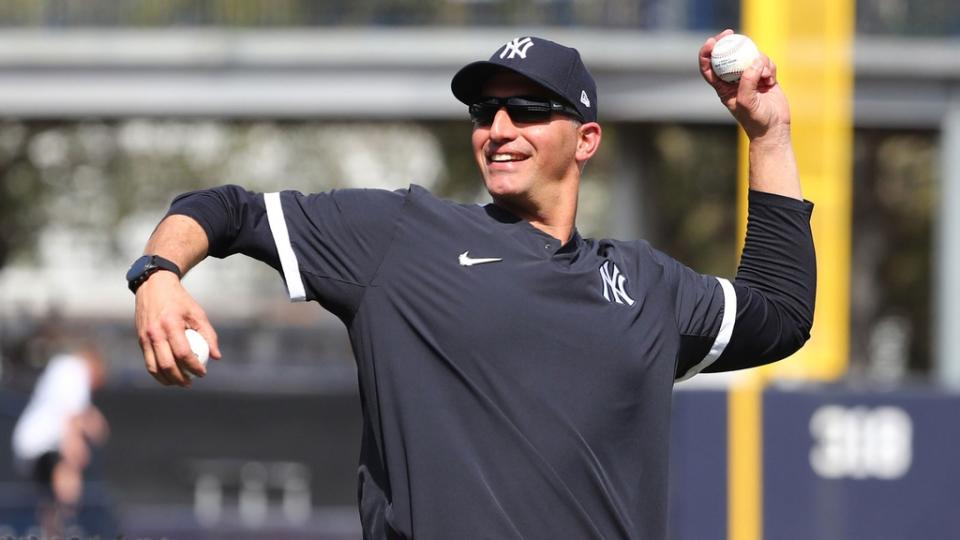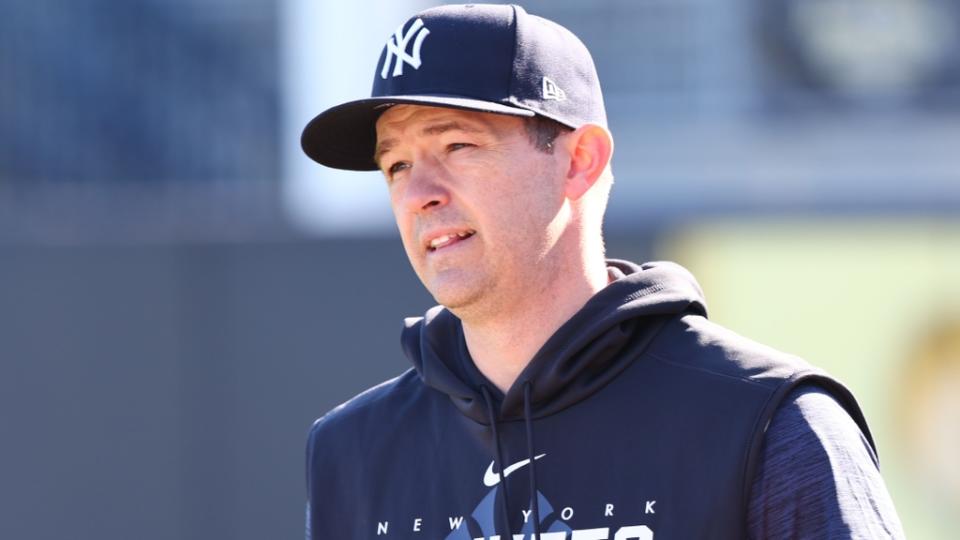The real story behind Andy Pettitte’s return to Yankees shows why pitching coach Matt Blake’s job is safe

On its surface, the Yankees’ recent addition of team icon Andy Pettitte to the front office seemed to invite comparisons to another move made this month, the firing of hitting coach Dillon Lawson and hiring of MLB veteran Sean Casey as his replacement.
Were the Yankees moving away from analytics? Was Pettitte now breathing down the neck of pitching coach Matt Blake -- who, like Lawson, did not play professional baseball?
As it turns out, the answers are no. And no.
“That’s not what this is at all,” manager Aaron Boone told SNY. “This is about how we feel about Andy and his impact.”
A closer look at Pettitte's brief exit and ultimate return to the Yankees makes clear why the hitting and pitching situations are so different. If not for the COVID-19 pandemic, Pettitte never would have had to return because he never would have left the fold in the first place.
In spring training of 2020, Pettitte was in uniform and on the field, just as he was during the homestand that ended on Wednesday. He was throwing batting practice and working with pitchers.
Once the pandemic hit, the Yankees voided the contracts of many part-time employees, including Pettitte and other ex-players like CC Sabathia. Boone, who has been friendly with Pettitte since the two played together in 2003, has been eager to re-activate Pettitte’s employment ever since.
In other words, the Yankees and Pettitte are now simply picking up where they left off before the pandemic.

Meanwhile, the organization sees Blake as a model for how a coach with no MLB playing experience and a facility with analytics should behave -- humble about what he does not know, open-minded and willing to listen to player feedback.
Where Lawson drew criticism for an excess of confidence in his theories, Blake combines a depth of knowledge with an understanding that there is always more to learn.
Pitchers, all the way up to ace Gerrit Cole, speak highly of him. GM Brian Cashman signed him to a three-year extension last winter, and Boone -- who is also expected to remain in his job long-term -- is fully committed to Blake.
“He’s great on that day-to-day,” Boone said. “He's great at handling young pitchers and veteran pitchers. He’s just as steady as they come. He’s going to be doing this for as long as he wants. Andy is in a different role.”
Asked directly if he expected Blake to be his pitching coach for many years to come, Boone said, “Yes. Yes.”
For his part, Pettitte does not want to become a pitching coach, for the Yankees or any other organization.
“As far as wanting to be a pitching coach down the line, I guess I would never say never, but I don’t really see that as something I would really be interested in doing,” he said earlier this week. “I think this [role] is just the perfect taste of it for me.”
In that role, Pettitte rejoins a front office that prides itself on intellectual and experiential diversity. Former players like vice president of baseball operations Tim Naehring and pro scouting director Matt Daley work alongside executives with analytics backgrounds like assistant GM Michael Fishman.
The issue with Lawson wasn’t analytics per se; it was communication and chemistry with players. Blake is strong in those areas, and the organization holds him in high regard.
For those reasons, he is here to stay, collaborating with Pettitte but not at risk of being replaced.

